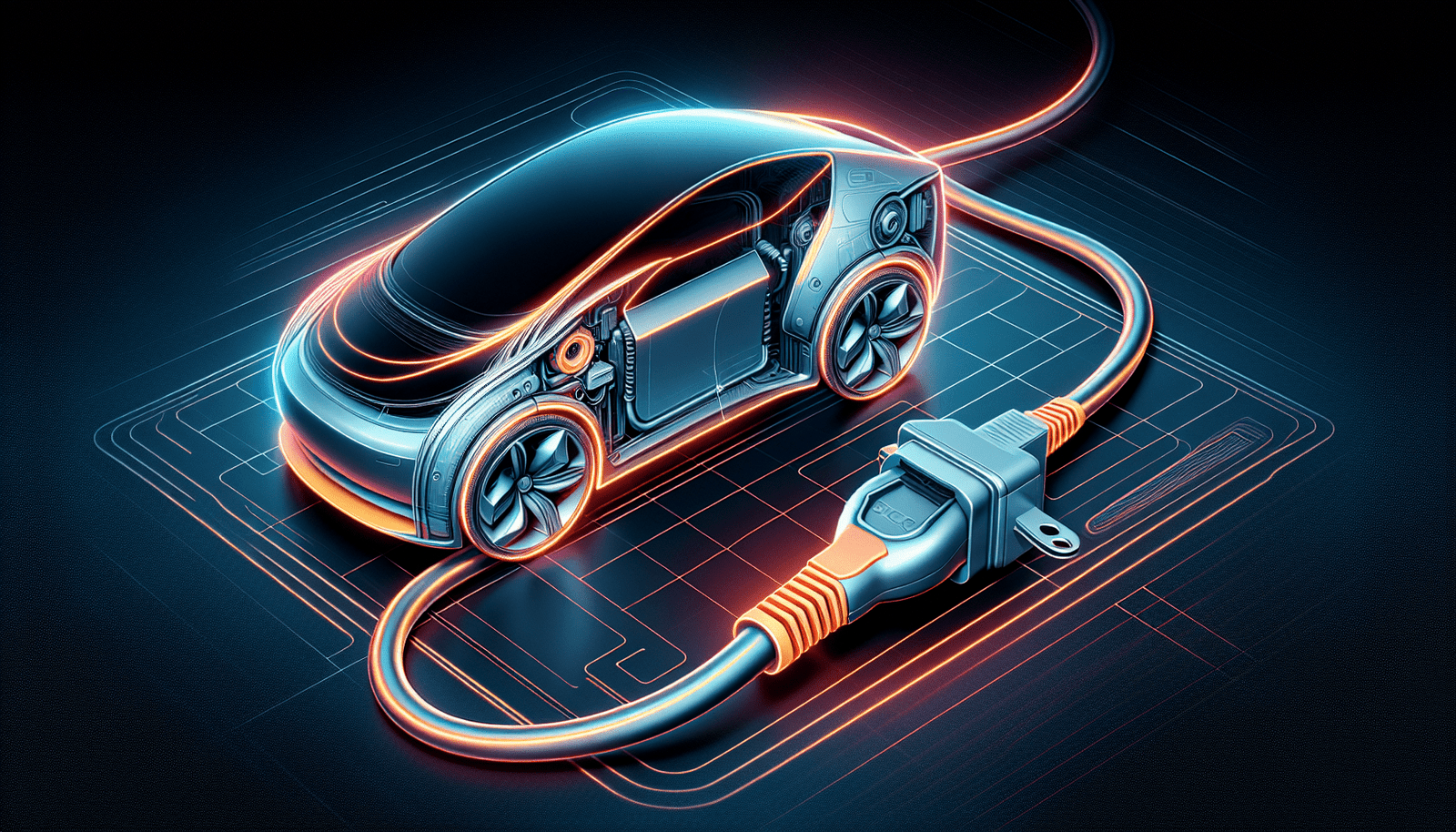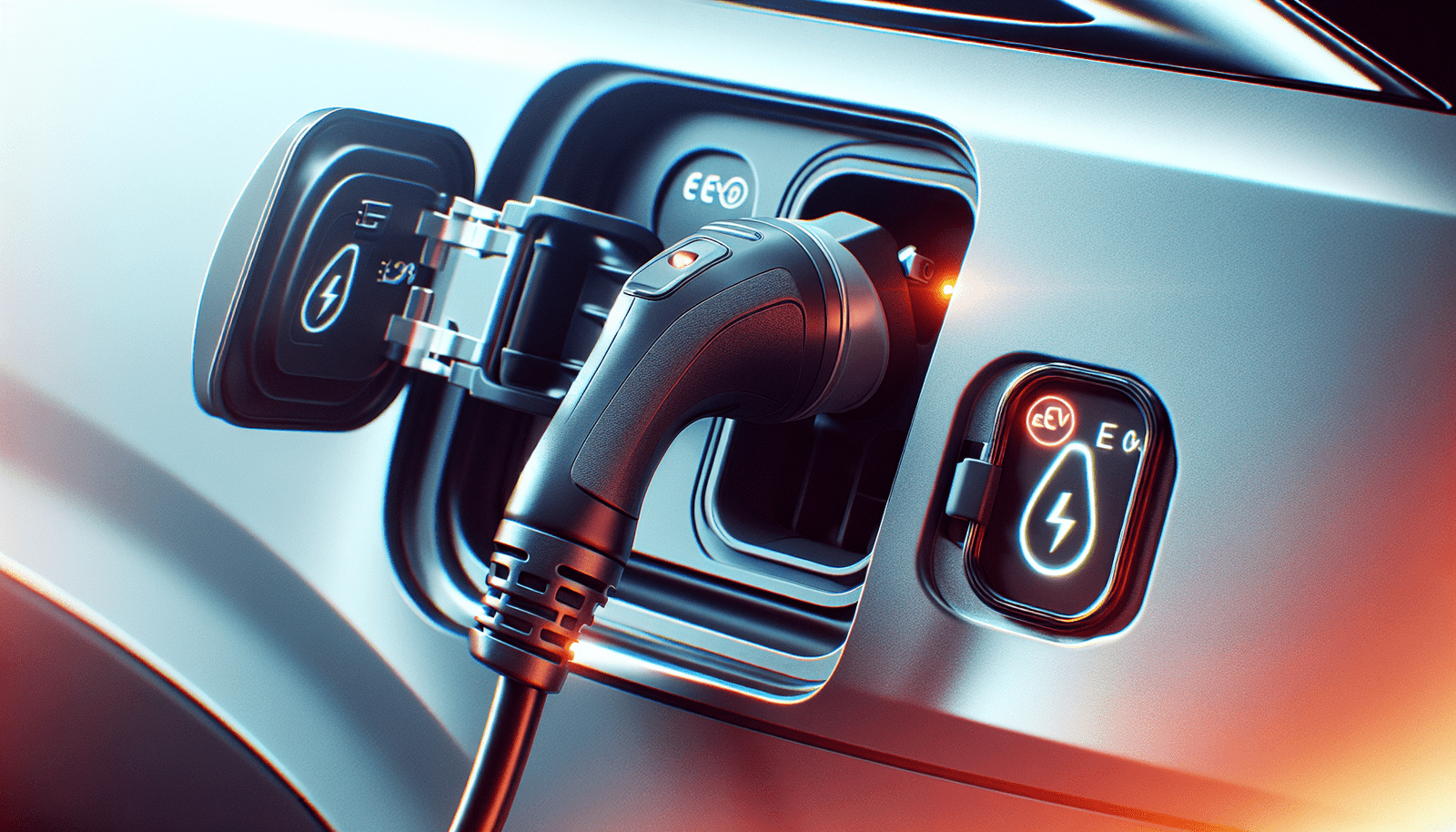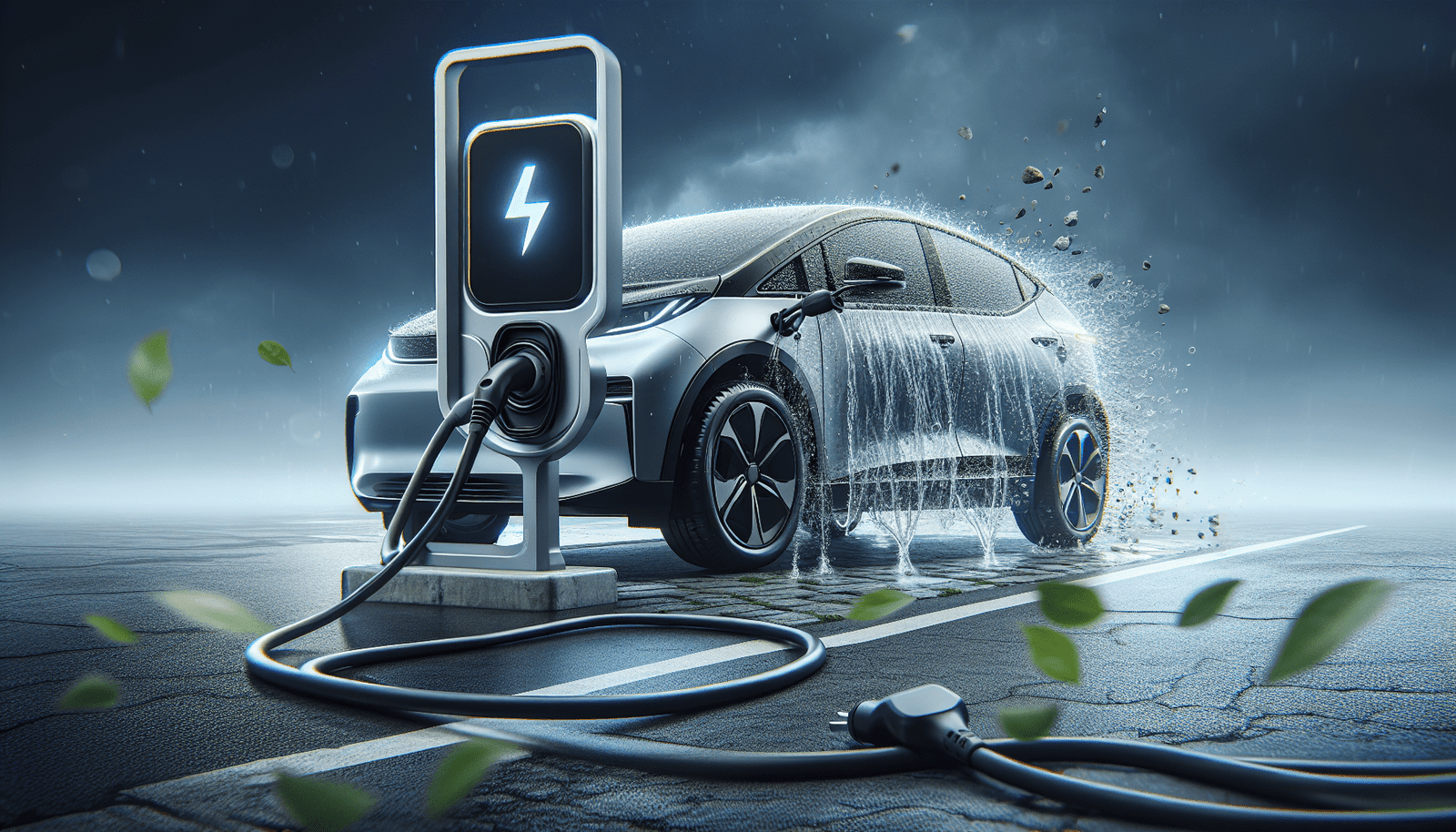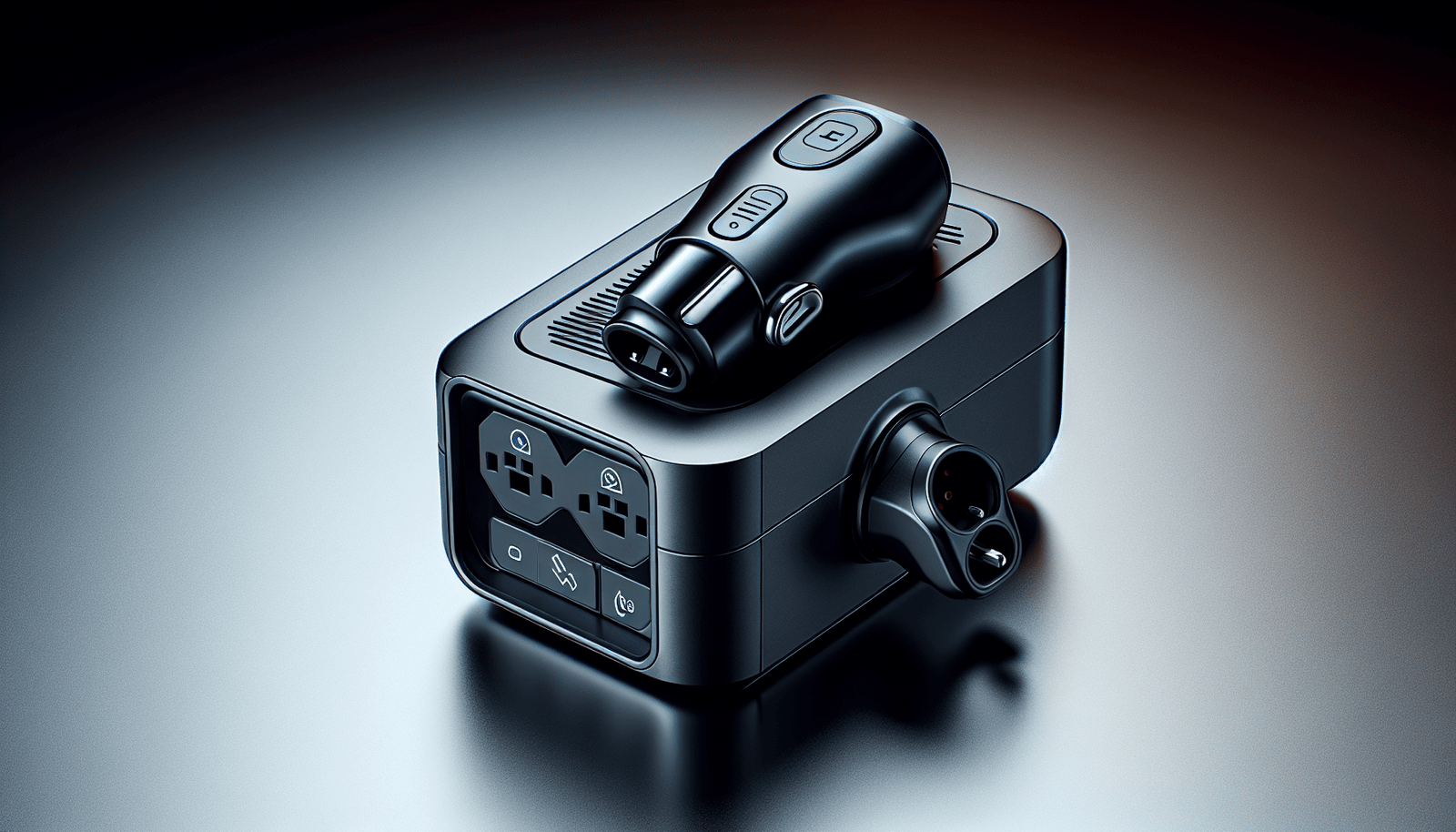When it comes to purchasing an EV charger plug, it’s important to know what key features to look for. From compatibility with your electric vehicle to charging speed and safety features, these factors can make a big difference in your charging experience. This article will guide you through the essential features you should consider when investing in an EV charger plug, helping you make an informed decision and ensure a seamless charging process for your electric vehicle.
Features To Look For When Purchasing An EV Charger Plug
Charging Speed
Understanding the voltage and amperage
When it comes to charging your electric vehicle (EV), understanding voltage and amperage is essential. Voltage refers to the electrical potential difference between two points, while amperage measures the flow of electricity through a conductor. In the context of EV charging, a higher voltage will generally result in faster charging times. Most residential EV chargers operate at either 120 volts (Level 1) or 240 volts (Level 2). Level 2 chargers provide a higher amperage and thus faster charging compared to Level 1 chargers.
Difference between Level 1 and Level 2 chargers
Level 1 chargers are typically included with your electric vehicle purchase and can be plugged into a standard household outlet. However, they tend to have lower amperage, resulting in slower charging times. On the other hand, Level 2 chargers require a dedicated electrical circuit and offer faster charging thanks to their higher amperage. Level 2 chargers are a popular choice for residential charging as they provide convenience and efficiency.
Importance of a higher wattage
The wattage of an EV charger directly affects its charging speed. Higher wattage chargers can supply more power to your EV, allowing for faster charging. It is worth considering a charger with a higher wattage, especially if you have a larger EV battery or if you require faster charging times. Investing in a higher wattage charger can significantly reduce the time it takes to charge your vehicle, ensuring you always have sufficient power for your daily commute or longer trips.
Cable Length
Determining the ideal length for your needs
When purchasing an EV charger plug, it is important to consider the cable length that will best suit your charging setup. The ideal cable length will depend on the distance between your EV charging port and the charging station. Measure the distance and choose a cable length that allows for flexibility and convenience during the charging process without unnecessary cable clutter.
Benefits of longer cables
Opting for a longer cable can have several advantages. It provides greater flexibility in positioning the charger, allowing you to reach the charging port from various angles or even charge multiple vehicles parked in different locations. Longer cables also come in handy when charging in public spaces where charging stations may be located further away from your parking spot. Additionally, longer cables can help future-proof your charging setup as they provide greater versatility for potential changes in your charging station’s location or your parking arrangements.
Storage and management solutions for longer cables
While longer cables offer increased flexibility, they can present challenges when it comes to storage and management. Fortunately, there are storage solutions available specifically designed for EV charger cables. Cable management devices, such as wall-mounted holders or retractable cable reels, help keep longer cables tidy and organized when not in use. These solutions not only reduce the risk of tripping hazards but also protect the cable from damage and extend its lifespan. Investing in proper cable storage and management ensures that your EV charging experience remains safe and hassle-free.
Safety Features
Necessary safety certifications
When purchasing an EV charger plug, it is crucial to ensure that the charger has undergone rigorous safety testing and holds the necessary certifications. Look for certifications such as UL (Underwriters Laboratories) or ETL (Intertek) to ensure compliance with safety standards. These certifications indicate that the charger has undergone comprehensive testing for electrical safety, fire resistance, and other vital factors. Prioritizing chargers with these certifications provides peace of mind and guarantees a safe charging experience.
Presence of in-built fault check systems
A reliable EV charger plug should include built-in fault check systems designed to detect potential issues during the charging process. These systems can monitor for faults such as ground faults, short circuits, or overcurrent conditions. When a fault is detected, the charger automatically stops the charging process to prevent any safety hazards. Investing in a charger with in-built fault check systems not only protects your electric vehicle but also minimizes the risk of electrical accidents and ensures the longevity of your charging equipment.
Importance of weather-proof casing
Outdoor charging stations require additional protection against the elements. An ideal EV charger plug should have a weather-proof casing, capable of withstanding various weather conditions, including rain, snow, and extreme temperatures. A weather-proof casing ensures the charger remains functional and safe regardless of the environment it is installed in. Additionally, the casing should provide proper insulation to protect against accidental contact with live electrical components. Prioritizing chargers with weather-proof casing guarantees consistent performance and extends the lifespan of your charging equipment.
Portability
Benefits of portable EV charger plugs
Portable EV charger plugs offer flexibility and convenience, allowing you to charge your electric vehicle wherever you go. These chargers are lightweight and compact, making them easy to carry in your vehicle or store in the trunk. Portable chargers eliminate the need for relying solely on public charging infrastructure, providing peace of mind for longer trips or unexpected situations where immediate charging is required. Whether you are visiting friends, going on a road trip, or even camping, a portable EV charger plug ensures you can always keep your vehicle charged and ready for your next adventure.
Convenience and use case scenarios for portable chargers
Portable chargers are particularly useful in scenarios where public charging stations are unavailable or fully occupied. Imagine arriving at a destination with limited charging options, or encountering a situation where the only available charging station is out of service. In these cases, a portable charger becomes a lifesaver, allowing you to charge your electric vehicle from any standard power outlet. With a portable EV charger plug, you can maintain your vehicle’s battery level without relying on external charging infrastructure, giving you the freedom to explore new places or navigate unforeseen circumstances with ease.
Connectivity
The use of WiFi or Bluetooth features
Modern EV charger plugs often come equipped with WiFi or Bluetooth features, enabling seamless connectivity between the charger and your smartphone or other devices. WiFi or Bluetooth connectivity allows you to monitor and control the charging process remotely. With a compatible mobile app, you can check the charging status, schedule charging sessions, and receive notifications about the charging progress. These features enhance the user experience and provide greater convenience when it comes to managing your EV’s charging needs.
Benefits of smart charging features
Chargers with smart charging features take connectivity a step further by offering advanced functionalities. These features include load balancing, which optimizes charging based on your home’s overall electricity usage, ensuring efficient charging without overloading your electrical system. Some chargers even offer real-time energy monitoring, allowing you to track and analyze your charging patterns, helping you make informed decisions about your energy consumption. Smart charging features not only enhance convenience but also contribute to more sustainable charging practices, saving energy and reducing electricity costs.
Ability to schedule charging times
One of the significant advantages of connected EV charger plugs is the ability to schedule charging times. By setting up a charging schedule, you can take advantage of off-peak electricity rates, maximizing cost savings. Additionally, scheduling your charging sessions ensures that your vehicle is charged and ready when you need it while minimizing the impact on your daily routine. For example, you can program your charger to start charging overnight, taking advantage of lower electricity demand to reduce strain on the electrical grid. Scheduling charging times not only optimizes convenience but also contributes to a more efficient and sustainable charging process.
User Interface
Importance of a clear and easy-to-use interface
A clear and easy-to-use user interface is paramount for a positive charging experience. A well-designed interface simplifies the charging process, minimizing the need for extensive user manuals or specialized knowledge. Look for chargers with intuitive controls, visible indicators, and straightforward instructions. A user-friendly interface ensures that anyone, regardless of their technical expertise, can operate the charger confidently and efficiently.
The role of visual indications for charging status
Visual indications play a vital role in keeping users informed about the charging status of their electric vehicle. LED lights or display screens that provide real-time feedback regarding the charging process help users monitor the progress at a glance. Clear indications of charging status, such as charging in progress, fully charged, or any error conditions, allow users to make informed decisions about their charging needs. A charger with visible indicators ensures a seamless and transparent charging experience, eliminating any guesswork or confusion.
Mobile app interfaces
Many EV charger plugs come with companion mobile apps that offer a more interactive and customizable user experience. Mobile apps provide a convenient way to monitor and manage your charging sessions remotely. With a user-friendly app interface, you can access various features such as charging history, energy consumption data, and even control advanced charging settings. Mobile apps provide enhanced control and flexibility, putting the charging process right at your fingertips.
Energy Efficiency
Understanding standby power draw
Standby power draw, also known as vampire power, refers to the electricity consumed by a charger when not actively charging a vehicle. While EV chargers need to remain connected to power for monitoring and control purposes, minimizing standby power draw is crucial to avoid unnecessary energy waste. Look for chargers with low standby power consumption to ensure that energy is not being needlessly consumed when the charger is not in use.
Energy saving modes on EV chargers
Many EV charger plugs feature energy-saving modes designed to reduce power consumption during idle periods. These modes automatically adjust the charger’s energy usage based on different factors, such as the battery charge level or user preferences. Energy-saving modes can significantly reduce electricity consumption and contribute to overall energy efficiency. Consider chargers that offer power management features to help optimize energy usage and minimize the impact on your electricity bills.
Role of efficient chargers in reducing electricity bills
Investing in an efficient charger helps reduce electricity bills in the long run. Efficient chargers convert electrical energy into usable power with minimal losses, resulting in less wasted energy. By selecting a charger with a high efficiency rating, you can maximize the power transferred to your electric vehicle while minimizing energy waste. An efficient charger not only saves money on electricity bills but also contributes to a more sustainable charging process, reducing your carbon footprint and supporting overall energy conservation efforts.
Price and Value
Evaluating cost vs features
When considering an EV charger plug, it is important to find the right balance between cost and features. While cost is a significant factor, it is equally essential to evaluate the charger’s features and capabilities. Look for chargers that offer the necessary charging speed, safety features, and convenience options that align with your specific needs. Choosing a charger solely based on cost may result in compromises on crucial aspects such as charging speed, reliability, or even long-term durability. Assessing cost versus features ensures that you are investing in a charger that provides the best overall value.
Price variations between Level 1 and Level 2 chargers
Price variations exist between Level 1 and Level 2 chargers, primarily due to the differences in charging speed and capabilities. Level 2 chargers, with their higher amperage and faster charging capabilities, generally come with a higher price tag compared to Level 1 chargers. However, it is important to consider the long-term benefits of faster charging speeds and increased convenience when comparing the prices. Assess your specific requirements and budget to determine whether the additional cost of a Level 2 charger is justified for your charging needs.
Considering the warranty and customer support provided
When purchasing an EV charger plug, it is crucial to consider the warranty and customer support provided by the manufacturer. A warranty offers assurance and protection in case of any manufacturing defects or malfunctions. Look for chargers that come with a comprehensive warranty, ensuring you are covered in case of any unforeseen issues. Additionally, prioritize manufacturers that offer reliable customer support, as it can make a significant difference in addressing any concerns or queries related to the charger. A reliable warranty and customer support contribute to a positive ownership experience and provide peace of mind.
Compatibility
Ensuring compatibility with your specific electric vehicle
Compatibility with your specific electric vehicle is a crucial factor to consider when purchasing an EV charger plug. Different electric vehicles may have varying charging port requirements or communication protocols. Ensure that the charger you choose is compatible with your vehicle’s charging port, whether it be a Type 1 or Type 2 connector. Research and verify compatibility information provided by the charger manufacturer or consult your electric vehicle’s documentation to ensure a seamless and efficient charging experience.
Understanding the types of plugs used by different EV manufacturers
Electric vehicle manufacturers often use different types of charging plugs or connectors. Understanding the specific plug types used by different manufacturers is essential when selecting an EV charger plug. Common plug types include Type 1 (SAE J1772) and Type 2 (IEC 62196) connectors. Some electric vehicles even support rapid charging options, such as the CHAdeMO or CCS (Combined Charging System) standard. Familiarize yourself with your vehicle’s charging requirements and consider chargers that support these specific plug types to ensure compatibility and optimal charging performance.
Installation Process
Choosing between plug-in and hardwired chargers
When it comes to the installation process of an EV charger plug, you generally have the option to choose between plug-in or hardwired chargers. Plug-in chargers are simpler and easier to install, as they can be connected to a standard power outlet. They offer flexibility and can be easily moved or relocated if needed. On the other hand, hardwired chargers require professional installation and are typically mounted on a wall or dedicated charging station. Hardwired chargers offer a more permanent charging solution and are capable of delivering higher charging speeds. Consider your specific circumstances, installation requirements, and future needs when deciding between plug-in and hardwired chargers.
Evaluating your home’s electrical system capabilities
Before installing an EV charger plug, it is crucial to evaluate your home’s electrical system capabilities. Determine if your electrical panel has sufficient capacity to support the charger’s power requirements. An electrician can assess your electrical system and ensure that the necessary electrical upgrades, such as adding a dedicated circuit or increasing ampacity, are in place to safely accommodate the charger. Taking the time to assess and upgrade your home’s electrical infrastructure as needed guarantees a smooth and reliable charging experience.
Process of professional installation vs DIY installation
Installing an EV charger plug requires electrical expertise and understanding of local electrical codes. While some plug-in chargers allow for DIY installation, it is strongly recommended to seek professional installation services to ensure the charger is correctly wired and grounded. Professional installation guarantees compliance with electrical safety regulations and reduces the risk of electrical hazards. Moreover, professionals can assess your specific installation requirements, recommend the best charging solution, and ensure the charger is correctly integrated into your home’s electrical system. Investing in professional installation provides peace of mind and ensures a safe and efficient charging setup.




